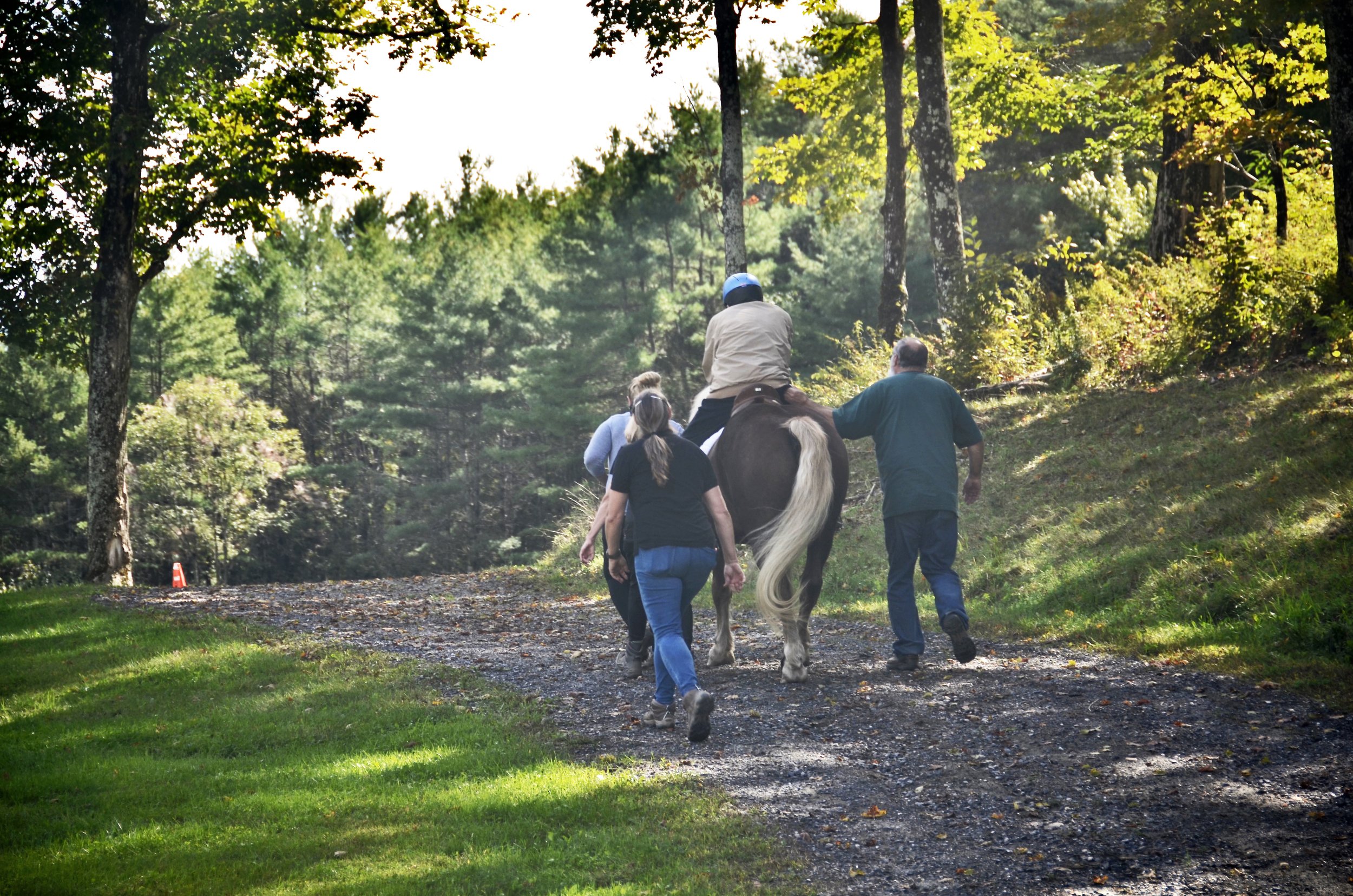
Equine-Assisted Psychotherapy (EAP) Equine Assisted Psychotherapy (EAP) is a holistic and experiential treatment method that enhances the unique bond between people and horses to promote emotional healing. Our dedicated therapy team consists of a Licensed Mental Health Professional, a therapy horse, and an Equine Specialist in Mental Health and Learning (ESMHL). If deemed beneficial, Certified Therapeutic Riding Instructors may also be present to integrate riding into the treatment plan.
What is an Equine Specialist in Mental Health and Learning?
An ESMHL plays a crucial role during sessions involving horses. They specialize in supporting mental health sessions and ensure confidentiality at all times. Their primary focus is on the well-being of the horse, providing insights about the equine and maintaining a safe environment throughout your session.
Who We Serve
EAP is designed to assist individuals facing various challenges, including:
Anxiety
Depression
Adjustment Disorders (loss/grief, life transitions)
Post-Traumatic Stress Disorder (PTSD)
Complex or Developmental Trauma
Substance Abuse and Dependence
Eating Disorders
ADHD
Dementia
Eligibility Requirements
Participants must have a mental health diagnosis, which can be provided by a Licensed Mental Health Professional through the initial assessment process. Sessions may also include a talk therapy component in a confidential setting.
Research shows the effectiveness of animal-assisted therapy. A study by Modern Psychological Studies noted a 0% dropout rate among students in animal-assisted therapy programs, compared to a 40% rate for those without. Additionally, a recent publication in The Journal of Pediatric Nursing highlighted a significant reduction in mental health disorders among children and youth engaged in animal-assisted therapy.
What to Expect
Equine Assisted Psychotherapy sessions integrate talk therapy with hands-on equine activities, such as:
Leading
Grooming
Lunging
Horse care
Learning natural horsemanship principles
Observing horse behavior and herd dynamics
Riding (when appropriate and with a Certified Therapeutic Riding Instructor)
Benefits
Participants often report a range of positive outcomes, including:
Increased energy and confidence
Reduced anxiety and depression symptoms
Enhanced sense of connection and improved relationships
Decreased impulsivity
Improved self-esteem and communication skills
Reduced symptoms of trauma and stress
Greater self-awareness, empathy, and mindfulness
Better emotional regulation

Make a donation.
With just one gift, you have the power to impact countless lives. From covering the cost of a session for a family in need, to vet care for a horse, to ensuring our staff are well taken care of, your support has endless reach.


